- Home
- Michael D. Britton
Quartet for Three
Quartet for Three Read online
Quartet for Three
by
Michael D. Britton
* * * *
Copyright 2012 by Michael D. Britton / Intelligent Life Books
“Welcome back to Symphonic Idol, I’m your host, Bryan Oceanfest. We’re down to America’s Top Six orchestra gurus, and tonight, we go down . . . to five. Any word from the judges on who you think will be going home?”
Network production director Jeff Johnson sat in the darkened booth with his headset on over his Cincinnati Reds baseball cap, turning script pages and giving the technical director moment by moment commands. The computer screens, the glow of the control board, and the wall of monitors provided all the light the crew needed to work.
“Standby camera two – take two. And standby camera one.”
Out on the floor under the bright lights and neon signage, surrounded by an in-the-round studio audience of eighteen hundred, the judge everyone loved to hate said his peace.
“Well, Bryan, I think it’s obvious,” said Sidney Powell, in his London East End accent, “Cindy’s pathetic performance last night on cello showed America that she’s just not ready for a first seat on the New York Philharmonic.”
“Camera three – pan the booing crowd. Standby three, and take three. Standby one, take one.”
“Looks like a few people disagree with you there, Sidney,” said Bryan. “Nothing new. What about you Lara?”
“Camera two get Lara, standby two, and take two.”
“I still like Cindy. I’m not going to make any long term predictions, but I think she’s safe for at least another week. It’s Joe I’m worried about. His violin work last night was kinda pitchy in places.”
“Okay camera three, get an MCU on Joe’s reaction. Standby three, take three. Standby one, and take one.”
“All right, some disagreement among the judges,” said Bryan. “Polly?”
“Camera two get Polly. Standby two, take two.”
“Oh, I just wanna say that this is the best Top Six we’ve ever had – ever – on this show. In five years, I have never seen such an array of talent – you’re all going to go far. That said, if forced to choose – oh, I just love you all! I guess I’d have to – reluctantly – agree with Sydney. Cindy, you just weren’t up to your usual standard last night, honey.”
“And finally Sandy Jefferson.”
“Camera two, pan to Sandy.”
“Look dude, this is tough, this is really tough when you get to this level. And at this level you peeps gotta bring it. And you ALL brought it last night, peeps. Yeah! I’m not even gonna take a guess. One of you’s gotta go, but I have no idea who America voted for – could be anybody, could be anybody.”
“Standby one, take one.”
“There you have it everybody, the judges are split – or stumped – but by the end of the show tonight we’ll have one fewer judge. Contestant – I mean one fewer contestant. Ha ha! We’ll be right back with more . . . ”
“Okay, standby to go to break, standby master control, and roll, and fade.”
“Four minutes!” called the floor director Erin Tortelli, her voice coming through the headsets clearly.
Jeff rubbed at his black goatee. He was glad there were only a few weeks left of this season. The show had been a huge success, sweeping the time slot coast to coast, but he’d negotiated a lousy contract going into this season. The pressure was phenomenal – that’s one major reason Jeff had gotten into directing live television – he loved the rush. Too bad about the pay.
And dealing with the personalities off camera – Bryan and the judges – not to mention the crazy contestants – left a lot to be desired. Behind the scenes, life was not as cool as the video vignettes made it out to be.
In fact, it was murder.
#
Lara LaGuardia hung around after the show for a while – in fact, she stuck around until everyone had gone home.
The set was dim and silent – such a contrast to all the lights and sounds of just three hours ago. Her heels clicked on the hard stage floor, the echo bouncing off the far wall behind the last row of empty seats as she walked across the stage, past Bryan’s tall stool with a little pile of cue cards, to the judges’ table.
That’s where the note had said to wait.
Always up for a little intrigue, Lara decided to play it out and see if perhaps Sidney had decided to take her up on the hints she’d been dropping like little bombs lately.
Maybe he was in the mood for some explosions, after all.
Assuming the note was from him – it was a computer print-out that had been slipped under her dressing room door, so there was no way of knowing for sure.
She sat in her usual seat and put her feet up on the table.
Suddenly, she felt an arm around her neck in a choke hold.
Her chair tipped back, the legs sliding forward from under her, and she found herself on her back with her heels still perched up on the table.
She struggled for air – she couldn’t see who was choking her.
She flailed against the attacker, but it was no use.
She started to weaken, to see stars.
She tried to cry out – but she had no air.
She saw a . . . a violin bow.
And then it was over.
#
Detective Lynn Hunter and Detective Steve Greene arrived at the Baker Studios sound stage for “18 Productions” and fought their way through the crowd of onlookers, oblivious to the light rain that fell from gray skies.
Stage hands, booth crew, a handful of suits – studio executives – and a number of police officers from various agencies stood around, while a coroner’s van backed up to the studio entrance with the back doors flung open.
“Coming through,” said Hunter, raising her arms to make her stature more narrow as she squeezed past the people on her way in. Hunter had the advantage of being six feet tall and built like a swimmer – lots of upper body strength.
Greene was a couple inches smaller, a couple years younger, and a couple of steps behind, taking advantage of the path Hunter was clearing.
As usual, the team worked like a well-oiled machine, despite their odd-couple pairing. Or, perhaps, because of it.
They reached the studio doors, displayed their badges to the security personnel and stepped inside, where the murmurs of the crowd could not be heard.
They walked down the auditorium aisle from the dimly lit back to the stage-lit front, hopped up on the dusty riser, and ducked under the police tape that had been erected around the scene of the crime.
“What do we have?” asked Hunter.
The medical examiner, Jim Rhodes, a man in his fifties with a Friar Tuck hairdo and gold rimmed glasses, was crouching beside the body. He looked up and said, “One Lara LaGuardia. Former TV star.”
“Oh my gosh!” blurted Greene. “Lara?”
“You know the deceased?” asked Hunter.
“Well, uh, no, of course not,” said Greene. “It’s just that it’s Lara – everybody knows Lara.”
“Well, I don’t,” said Hunter. “I don’t watch television. Haven’t for years.”
“But you work in Burbank?” asked Rhodes.
“Your point?” said Hunter. “I mean, it’s not like everybody who lives in Detroit drives a car.”
“Uh, yeah they do,” said Greene.
“Fine. Bad example,” said Hunter. “Anyway – what was the cause of death?”
“Well,” said Rhodes, “I’ll have to perform an autopsy to be sure, but my guess would be the violin bow that’s been shoved all the way down her esophagus.”
“That might have had something to do with it,” said Hunter. “You could say she’s got a frog in her throat, eh?”
Greene just stared
at his partner.
“A frog? Get it?”
“No.”
“The end of the bow – the part that’s probably in Ms. LaGuardia’s stomach – is called the frog. It’s the part to which the horsehair is attached.”
“Where did you learn so much about musical instruments?” asked Greene.
“I thought you knew I was in the string ensemble in college.”
“I learn something new about you every day,” said Greene. “Now, what can you tell us about the bow itself, the method of the killing,” he said to Rhodes.
“Well, it’s a standard carbon fiber epoxy composite. Nothing fancy. No prints on it. But the more I look at this, the more it looks like the victim was strangled prior to the introduction of the bow. I believe the bow was shoved down her throat after the fact.”
“A punitive measure,” nodded Hunter.
“Or a plant – a way to try and frame someone,” said Greene. “Make it look like it was one of the contestants.”
“I’m not a psychologist,” said Rhodes, but given the amount of force with which this instrument was inserted in the victim’s throat, I would lean toward Detective Hunter’s instincts. This was done in the heat of anger. If not, the killer is a very, very cold-hearted person indeed.”
“Thanks,” said Hunter. “We’d better start asking questions.”
“Oh, one last thing,” said Greene. “Time of death?”
Rhodes squinted. “I’d say six hours or more.”
Hunter and Greene headed for the sound stage doors.
“So, we’re really gonna get to talk to Sidney, and Polly, and Sandy?” asked Greene, excitement in his voice.
“And who might they be?” asked Hunter. Her voice sounded as if she were half asleep.
“The other judges! I can’t believe you don’t know that. I mean, not watching the show is one thing, but how can you be so completely isolated from your own culture?”
“Oh, I have culture, Steve. Just not ‘pop’ culture. I choose to spend my time reading good books, attending the theater – no, not the Cineplex – and taking in a good symphony.”
“Symphony? I always figured you for the outdoors type – softball, hiking, you know. But if it’s the symphony you like, then all the more reason you should watch Symphonic Idol! This is where America’s next great orchestral musician is going to be born!”
“Mm-hm. I was thinking it might be Julliard, or maybe the New England Conservatory. Silly me.”
They reached the top of the auditorium and stopped before going out the doors. They looked back at the stage.
“Why would someone choose to kill Lara here, on the show’s stage – at the judges’ table?” asked Greene.
“I think if we find the answer to that, we’ll have the answer to who did it,” said Hunter.
They opened the doors, and started to pick out the people they would interview.
#
“Sure, of course I was jealous. At first,” said Polly Jabaar, the only other female judge on the show. She sat across the table from Hunter and Greene in one of the studio executives’ offices that had been converted into a makeshift interrogation room. The walls were lined with framed posters of the executive’s smash hit reality shows over the years: Terror Time, Who Wants To Be Adopted By A Millionaire, The Waterboarders, and High School Ho.
Polly took a sip of her decaf and continued. “But I got over it. There was nothing in my contract that said I had to be the only chick on the show – I mean, the only female judge. I can share the limelight. No problem.”
“You sound real broken up about Lara,” said Hunter.
“Look, I really didn’t know her all that well, okay?” said Polly, catching Hunter’s sarcasm. “This is her first season on the show. It’s not like we shared a dressing room or anything. Really, I feel bad. I’m kinda in shock, to tell the truth. And wondering what’s gonna become of the show.”
“And where were you last night, after the show?” asked Greene.
“Same place I always am. With my therapist. I have a standing appointment.”
“All right, that’s all for now. Thank you,” said Hunter.
Polly shrugged, got up, and left without another word.
“You have to keep staring at her like that?” asked Hunter after the door closed.
“Sorry. It’s just that I’ve been a big fan ever since the 80s when she sang Cold Souled Serpent. I loved that song when I was a freshman in high school.”
“Seems like a song suited to her,” said Hunter. “Funny, I don’t remember that tune.”
“Probably because you were busy hanging out at the museum and reading ancient Greek poetry,” said Greene.
“You notice her eyes?” said Hunter.
“Looked like she’d been crying. She loves to be a drama queen for the press.”
“Or maybe she was up late last night.”
#
“I thought a couple of those acts died on stage last night,” said Sidney Powell, “but this brings the phrase to a new level, dunnit?”
Sidney sat across from the two stone-faced investigators, an uneasy smirk on his face.
“This isn’t a laughing matter, Mr. Powell,” said Greene.
Sidney exhaled like letting air out of a balloon, and his smirk quickly turned to a deflated frown. “I know, you blimmin’ idiot. I’m just very uneasy with all this. I – I actually like Lara quite a bit, and she’s an amazing record producer. I’m sort of just trying to deal wivvit in my own, clumsy way, I suppose. I’m sorry.”
Greene noted that Sidney still referred to Lara in the present tense – as though her death really hadn’t sunk in yet. He stood and strode casually to the window, which overlooked the studio back lot. A film crew was setting up for an outdoor sequence of some reality show about skinny people trying to gain weight.
He spoke without turning to Sidney. “How well did you know Lara?”
Sidney looked down, fidgeted. “Oh, I dunno, quite well, I suppose. We worked together on and off in the record industry before she joined Idol. Fact I helped her get on the show – well, it was my idea she join – she didn’t need my help getting on. She was quite capable of handling that all by ‘erself.”
Hunter watched Sidney as he spoke of his deceased colleague. “Do you have any thoughts on why someone would want to kill Ms. LaGuardia? Did she have any enemies that you know of?”
Sidney ran a hand across his short black hair. “Look, this is not a business for the faint of heart. It’s dog eat dog eat cat eat whatever gets in your way on your path to the top. People think rock ‘n’ rollers are rough, but these classical musicians are far worse in my opinion. I think it’s because so many of them come from places of privilege, they feel entitled to success. But in the end, they have to earn it, just like the poor girl and the middle class boy and everyone else. All that matters is the talent – not where you come from or how much money your parents ‘ave. For some, that’s not a reality they can accept.”
“So are you saying you think one of the contestants may have done this?” asked Greene.
“I’m not saying bloody anything, mate. I just think you need to consider all the possibilities, here.”
“Believe me, Mr. Powell, we will,” said Hunter. “One last question – when was the last time you saw Ms. LaGuardia?”
Sidney blinked and raised his eyebrows. “Same time most of us did – right after the show last night. I ‘ung around for a few minutes to speak wivv the production booth – I am one of the executive producers, you know, so I like to review each show briefly following sign off – and then I said ‘cheerio’ to Sandy, Polly, and Lara, then left the studio.”
“Thank you,” said Hunter, standing to indicate the questioning was over. “That’ll be all – for now. Where can we reach you if we need to follow up?”
“I pretty much live here during the season,” said Sidney. “I sleep off site, but during the day and most of the evening I’m here working. Just have security buzz me
– I always carry a walkie talkie.”
He gave a grim smile and let himself out the office door.
“Thoughts?” asked Hunter.
Greene returned from the window and sat on the brown leather sofa opposite the desk. “I think he did what he does on the show each week – told the cold hard truth.”
“Go get the other one,” said Hunter.
Greene walked to the door and poked his head out. After a few moments, a stocky black man wearing as much gold as Mr. T entered and took a seat after shaking hands with the detectives.
“S’up, peeps.”
“S’up . . . is that your fellow judge swallowed a violin bow,” said Hunter leaning toward Sandy Jefferson.
“I know, I know, y’all. That’s just my way of greeting you. What happened to Lara is blow, yo. I just can’t believe it.”
“What was your relationship with Lara, Sandy?” asked Greene.
“We were tight, yo. She was wunna my peeps.”
“Had you worked with her previously – before Symphonic Idol?” asked Hunter.
“Sure, sure. This is a big ol’ business but a small town. Lara and I actually co-produced an album of electroniclassical jams. You know, Mozart and Bach with a kickin’ beat, with all the instruments played by smokin’ hot chicks?”
“Right,” said Greene. “Wasn’t it called something like Baroque ‘n’ Legs, or something?”
“That’s right, yeah!” said Sandy, flicking his wrist to snap his fingers. “Sold like hotcakes for about three months, then fizzled away to nothing. Great stuff, though.”
“Back to Lara,” said Hunter, “why would anyone want to kill her?”
“Beats the crap outta me,” said Sandy. “I thought everyone liked her. She was straightforward on the show, gave everyone a fair shake, balanced reviews. Everyone on the crew seemed to like her. I’m stumped.”
“Okay, Sandy,” said Greene. “Thanks. We may be talking to you again soon.”
Sandy got up and left, moving fairly quickly for a man his size. He closed the door behind himself.
“What’s your read?” asked Hunter.
“Something’s not right. Maybe he just misspoke, but as I recall, Baroque ‘n’ Legs made millions. It was in the top ten on three charts for at least a year after it came out, and there was even a U.S. concert tour. I should know – I saw them in Sacramento that summer.”

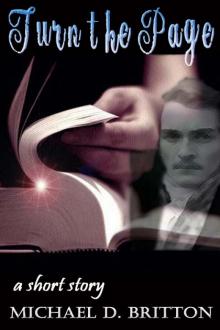 Turn the Page
Turn the Page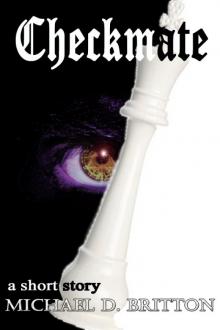 Checkmate
Checkmate A Slave to Race
A Slave to Race The Only
The Only Convergence
Convergence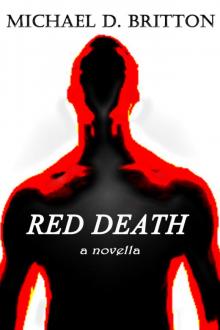 Red Death
Red Death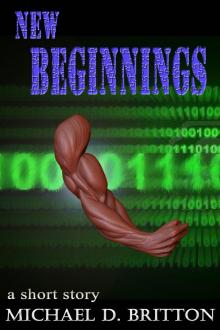 New Beginnings
New Beginnings Liberation
Liberation Old Wounds
Old Wounds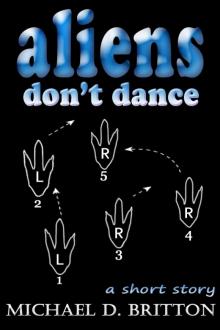 Aliens Don't Dance
Aliens Don't Dance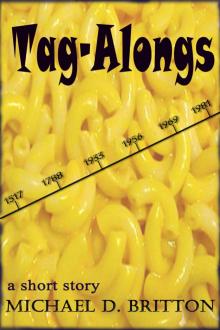 Tag-Alongs
Tag-Alongs Broker
Broker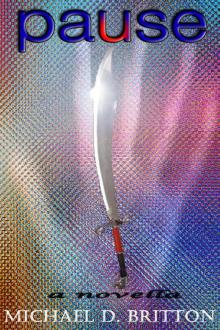 Pause
Pause Predict THIS
Predict THIS AaBack's Grimm: Dark Fantasy Fairy Tale #2 Friends Reunited: The Janus Beast, The Rose Beauty, And The Cursed Duckling
AaBack's Grimm: Dark Fantasy Fairy Tale #2 Friends Reunited: The Janus Beast, The Rose Beauty, And The Cursed Duckling Unsettling Things & Other Stories
Unsettling Things & Other Stories Ask Grench
Ask Grench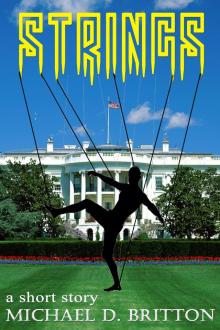 Strings
Strings Going to the Dogs
Going to the Dogs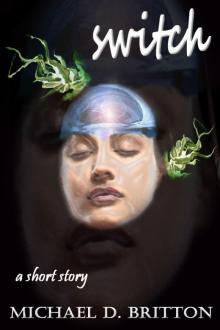 Switch
Switch Statute Forty-Nine
Statute Forty-Nine Brain Storm
Brain Storm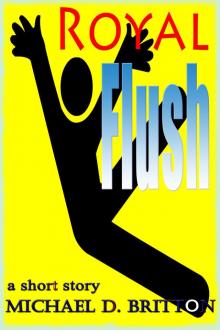 Royal Flush
Royal Flush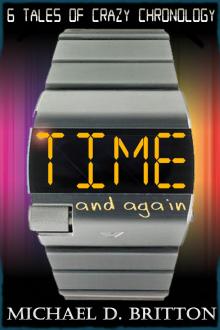 Time and Again: A Collection of Crazy Chronology
Time and Again: A Collection of Crazy Chronology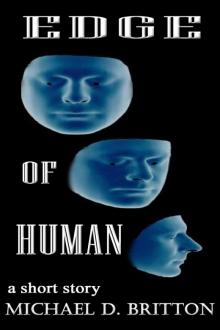 Edge of Human
Edge of Human A Sense of Souls
A Sense of Souls Decisions, Decisions
Decisions, Decisions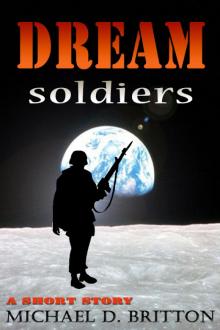 Dream Soldiers
Dream Soldiers Spies: 7 Short Stories
Spies: 7 Short Stories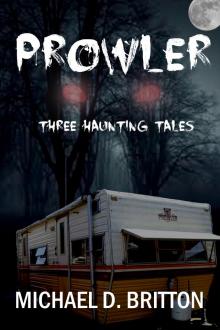 Prowler: Three Haunting Tales
Prowler: Three Haunting Tales The Release
The Release Lunar Tales - an anthology
Lunar Tales - an anthology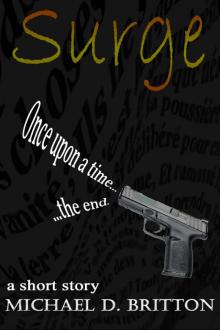 Surge
Surge Sole Survivarrrgh
Sole Survivarrrgh Remember
Remember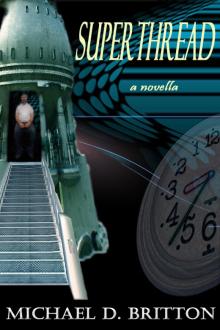 Superthread
Superthread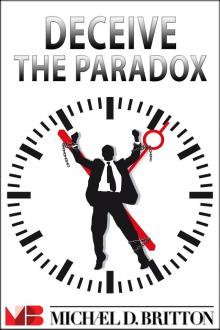 Deceive the Paradox
Deceive the Paradox Project: Dreamer
Project: Dreamer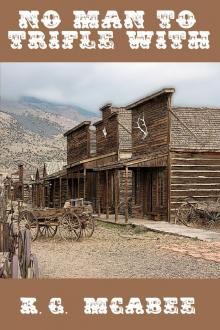 No Man to Trifle With
No Man to Trifle With Diaspora
Diaspora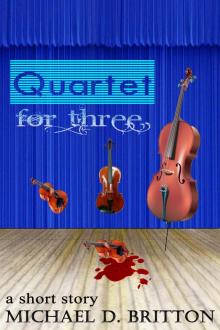 Quartet for Three
Quartet for Three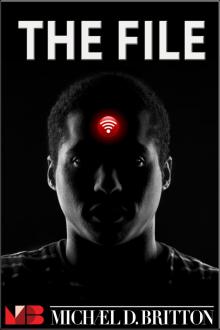 The File
The File These Dark Electrons
These Dark Electrons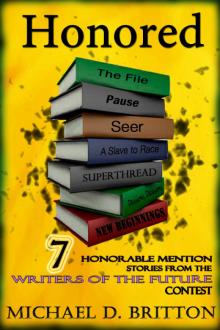 Honored: 7 Honorable Mention Stories from the Writers of the Future Contest
Honored: 7 Honorable Mention Stories from the Writers of the Future Contest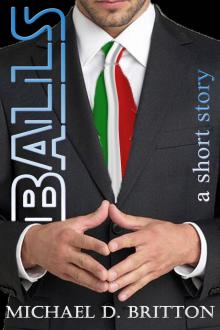 Balls
Balls The Final Testament
The Final Testament The Exile
The Exile OtherPlace
OtherPlace